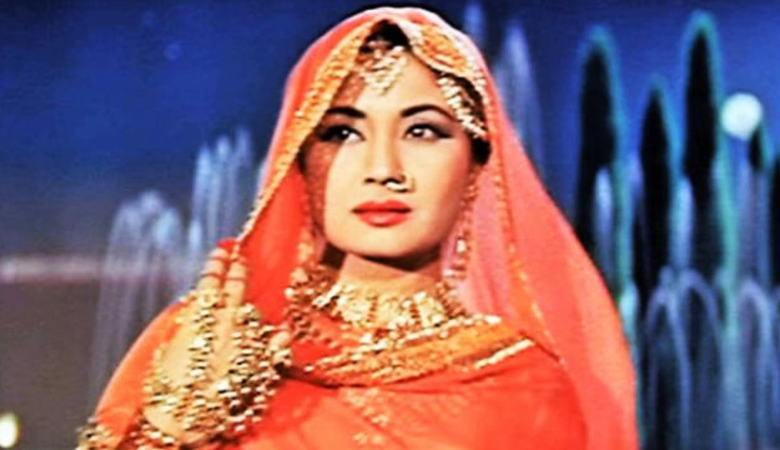Meena Kumari: India’s Tragedy Queen Who Died Penniless at 38 After a Life of Heartbreak and Alcohol

News Mania Desk/Agnibeena Ghosh/1st August 2024
Meena Kumari, often hailed as India’s ‘Tragedy Queen,’ epitomized both the on-screen and off-screen sorrow that marked her short, tumultuous life. Born Mahajabeen Bano on August 1, 1932, Meena Kumari began her acting career at the tender age of four, thrust into the spotlight to support her family. Her early entry into the film industry meant that her childhood was sacrificed to the demands of the screen, a theme that would tragically mirror her personal life.
Her acting career spanned numerous iconic films, including “Pakeezah,” “Sahib Bibi Aur Ghulam,” “Aarti,” “Baiju Bawra,” “Parineeta,” and “Main Chup Rahungi.” Known for her talent and versatility, Kumari not only captivated audiences but also made significant contributions behind the scenes. For instance, she designed costumes for her landmark film “Pakeezah,” a project that has continued to inspire filmmakers like Sanjay Leela Bhansali and Muzaffar Ali. Her artistic flair extended to poetry and literature, further showcasing her multifaceted talents.
Despite her immense success, Meena Kumari’s life was marked by profound personal struggles. According to Vinod Mehta’s biography, she was often described with sympathy, reflecting her real-life hardships. Her career began with modest beginnings, receiving just Rs 25 for her debut role in Vijay Bhatt’s “Leather Face.” As her career progressed, she earned significantly more, but her personal life remained fraught with difficulties.
Kumari’s generosity towards her peers and family is well-documented. She was known for her willingness to help newcomers and support her relatives, often going above and beyond to ensure their well-being. Stories abound of her selfless acts, such as paying double the usual fee to secure a small part for a relative or offering financial support to filmmakers in need. Despite her own financial instability, she was always willing to assist others, reflecting a character that extended far beyond the screen.
Her personal life, however, was marred by addiction and tumultuous relationships. Married to filmmaker Kamal Amrohi, their relationship was fraught with issues, including allegations of physical abuse and neglect. Even in the face of personal strife and deteriorating health, Kumari continued to work on “Pakeezah,” insisting on completing the film despite her condition. Her commitment to her craft remained unwavering until her last days.
By the time of her death at 39, Meena Kumari was left in dire financial straits, with reportedly less than Rs 3500 to her name, insufficient to cover her hospital bills. Her passing in 1972 was marked by a poignant lack of support from those who had once been close to her, including her estranged husband. The financial difficulties that plagued her final days starkly contrasted with the acclaim and admiration she received during her life.
Kumari’s death from cirrhosis of the liver was a tragic end to a life filled with brilliance and sorrow. She was buried in Rehmata Baug, Mumbai, a resting place that Vinod Mehta described as starkly inadequate for someone of her stature. Her sister Khursheed revealed that Kumari had wished to be cremated next to her parents, a wish that remains a poignant reminder of the disconnect between her public persona and personal reality. Meena Kumari’s life and death are a testament to the complexities of fame, talent, and personal struggle, encapsulating a legacy that endures long after her passing.






